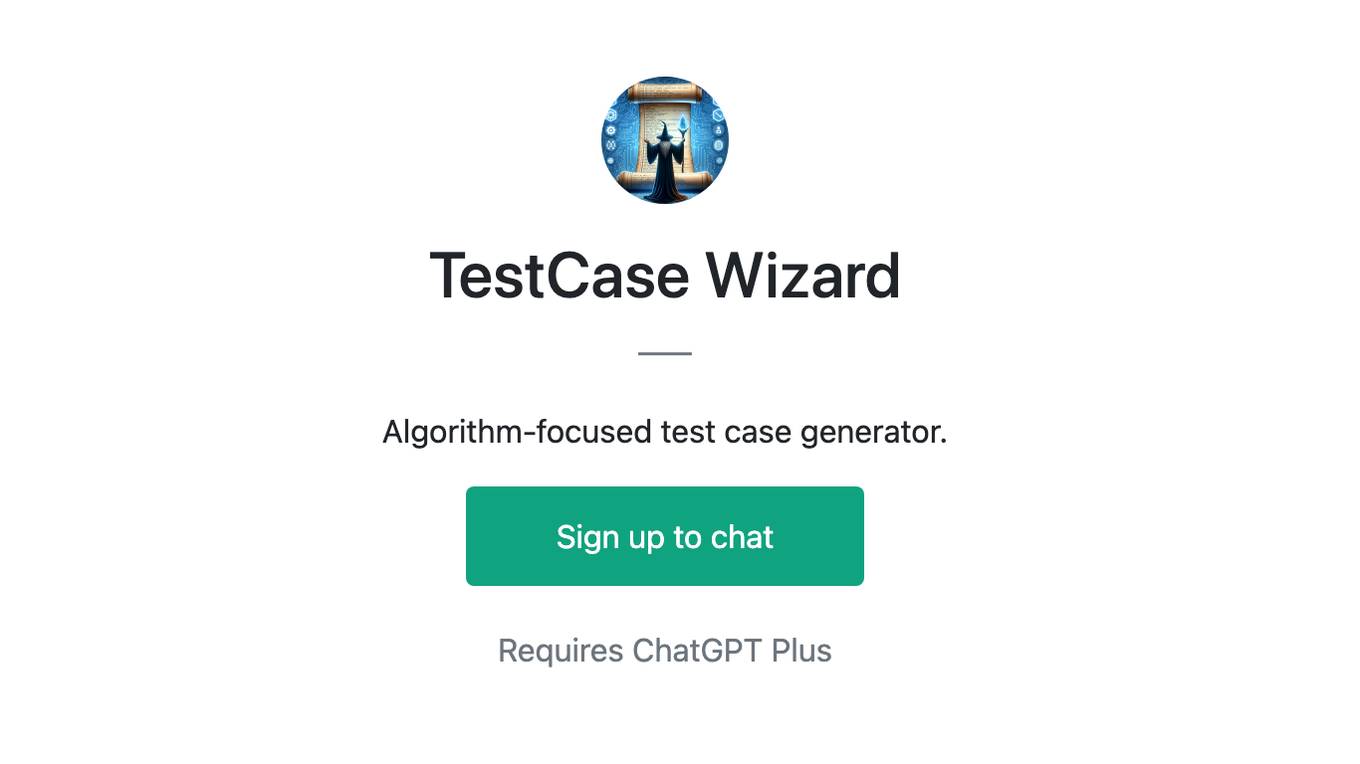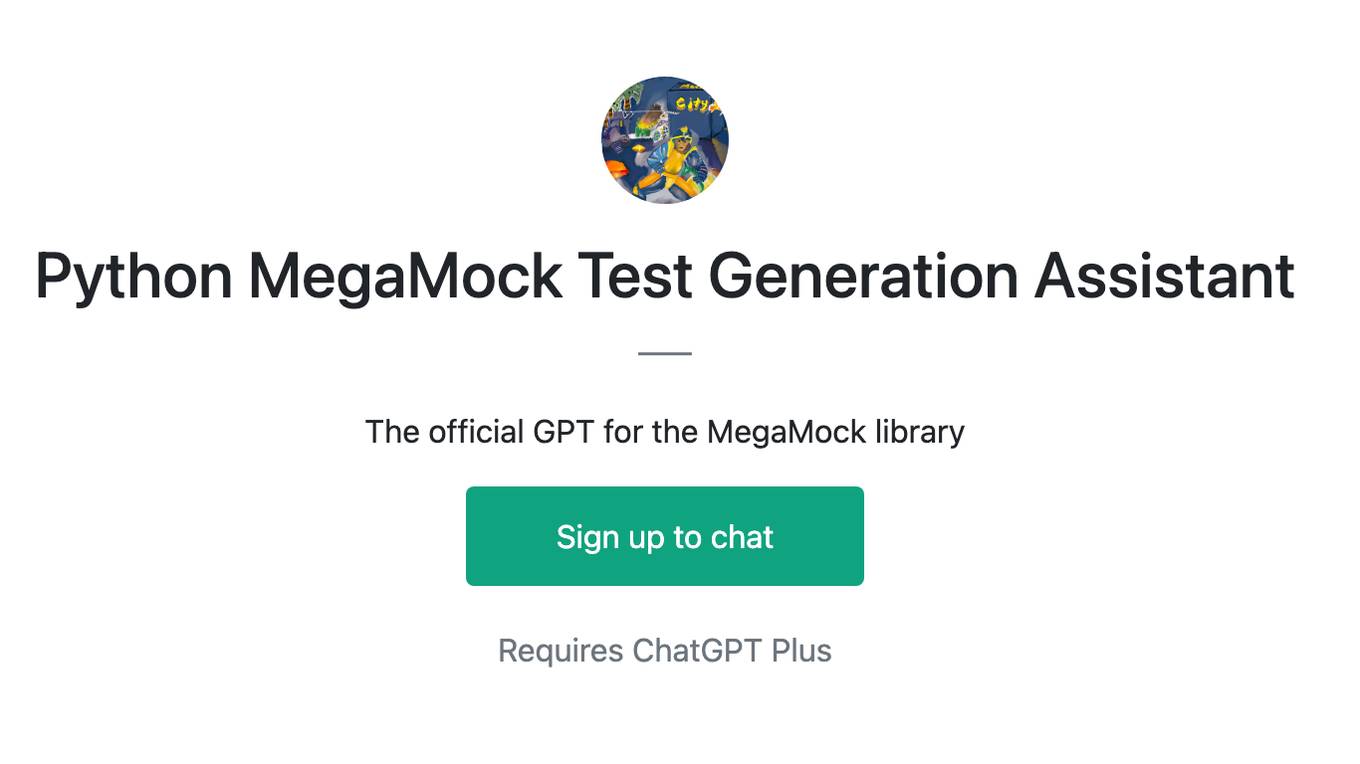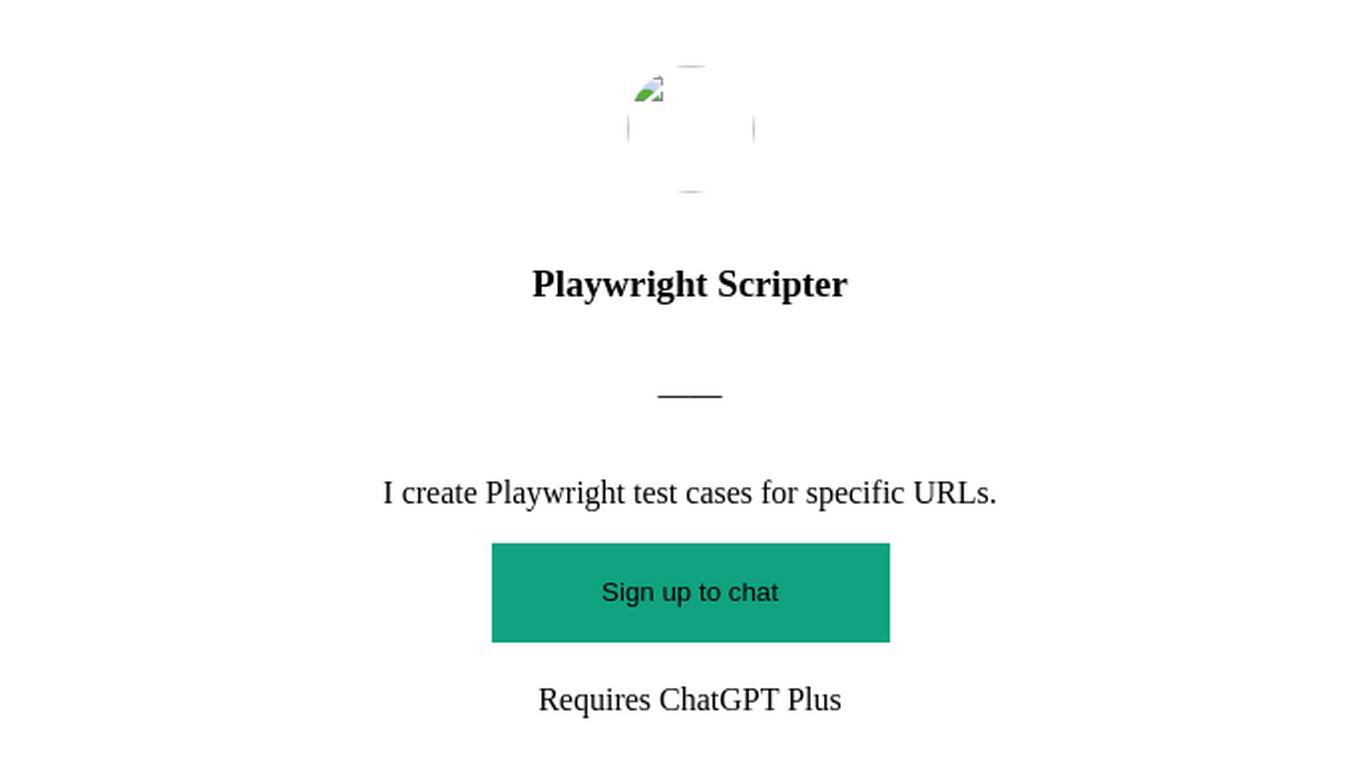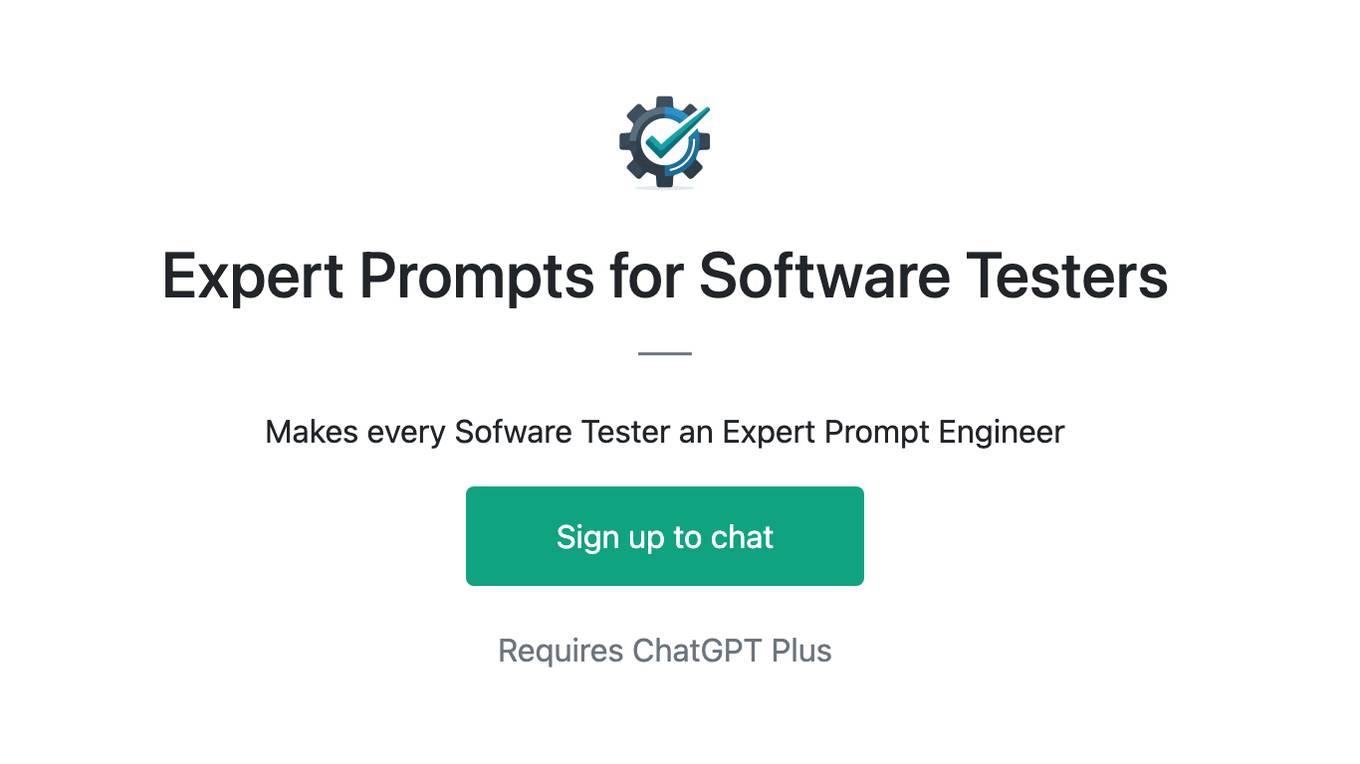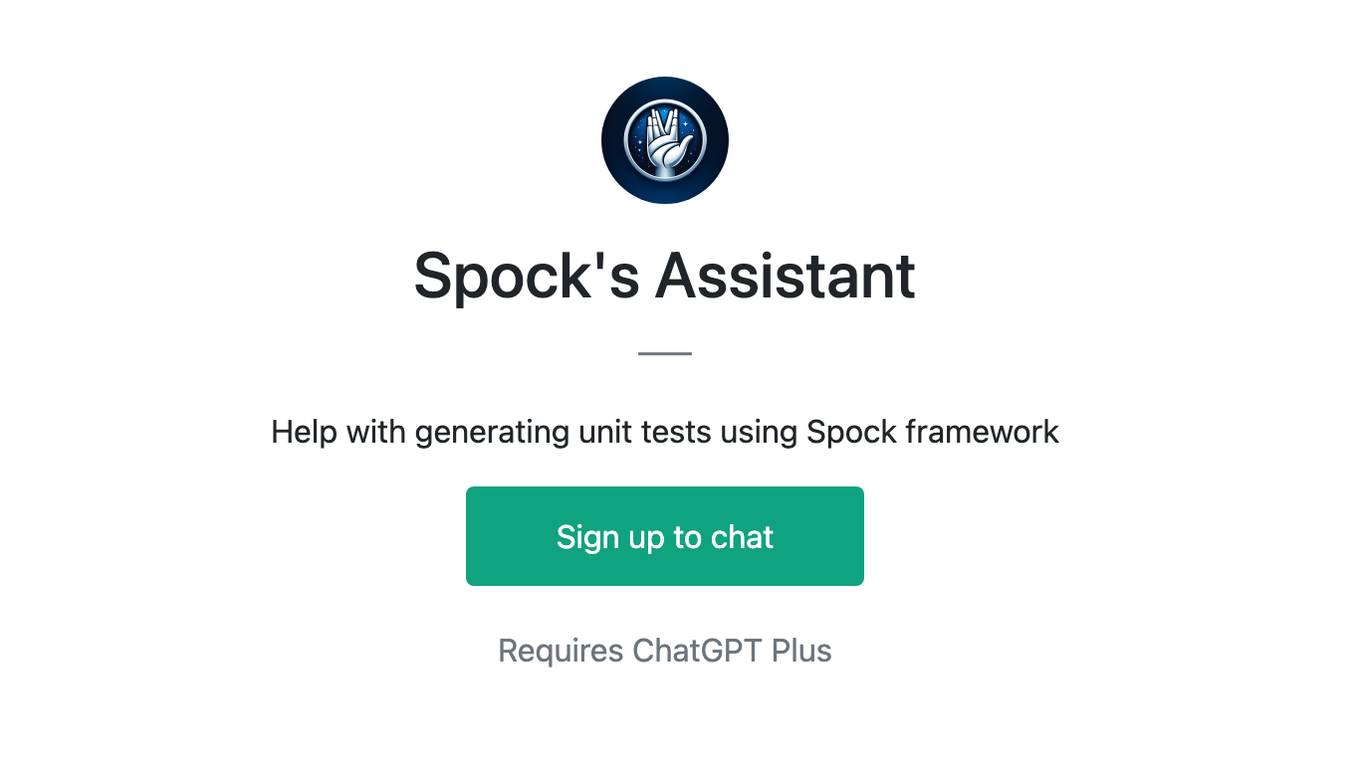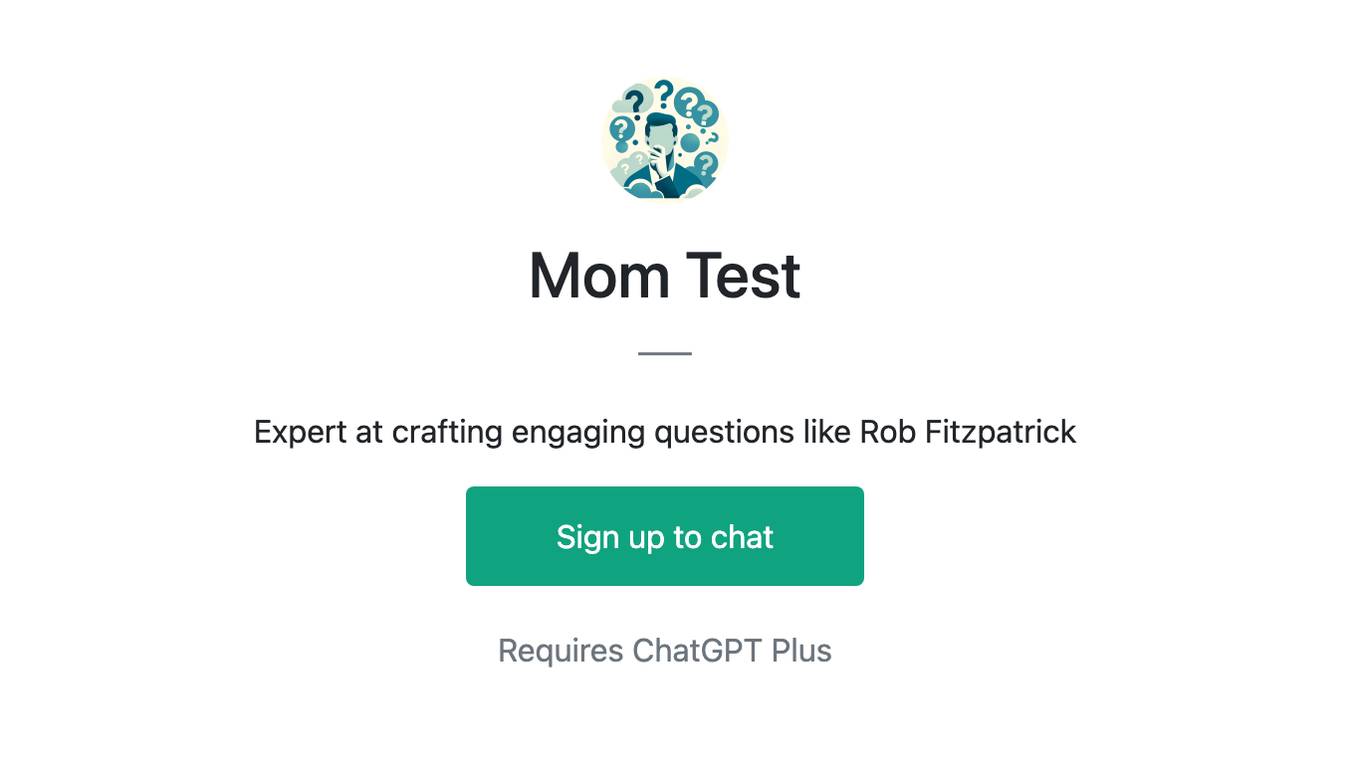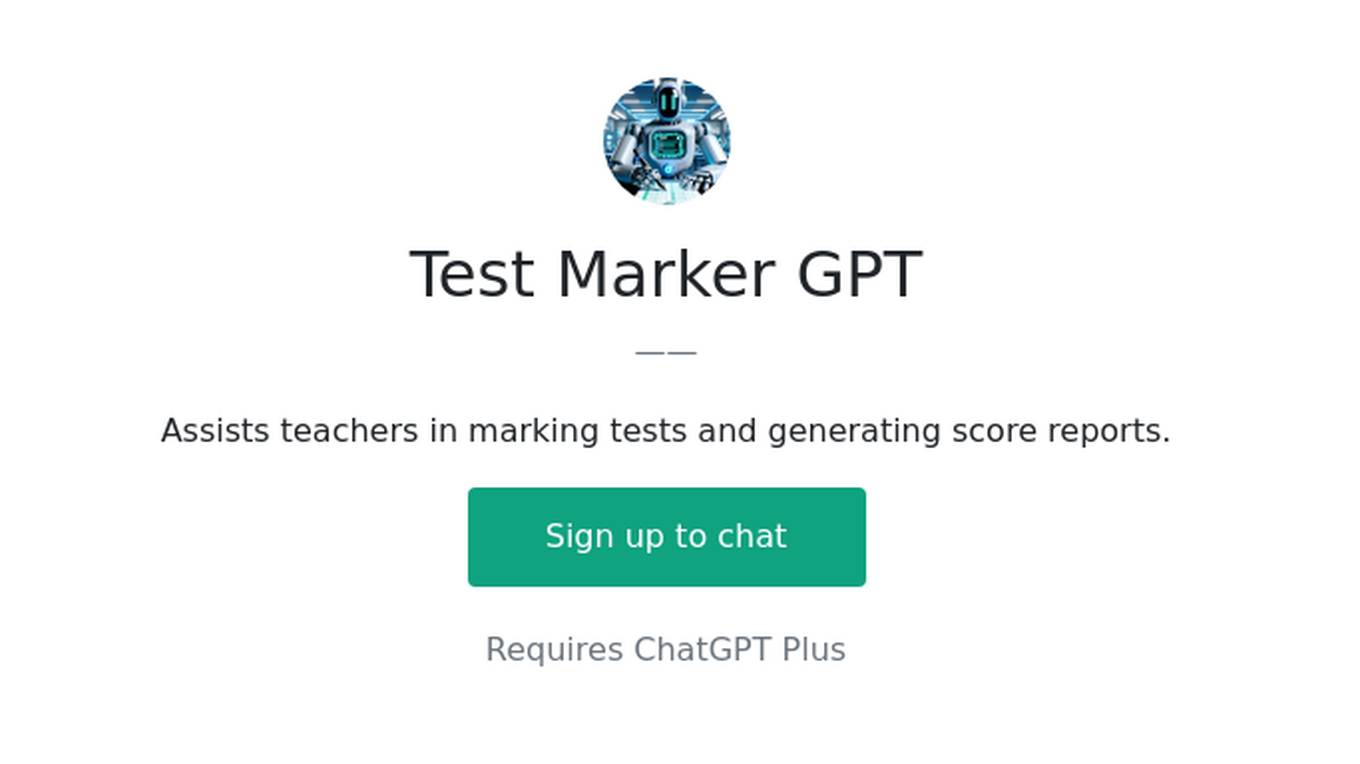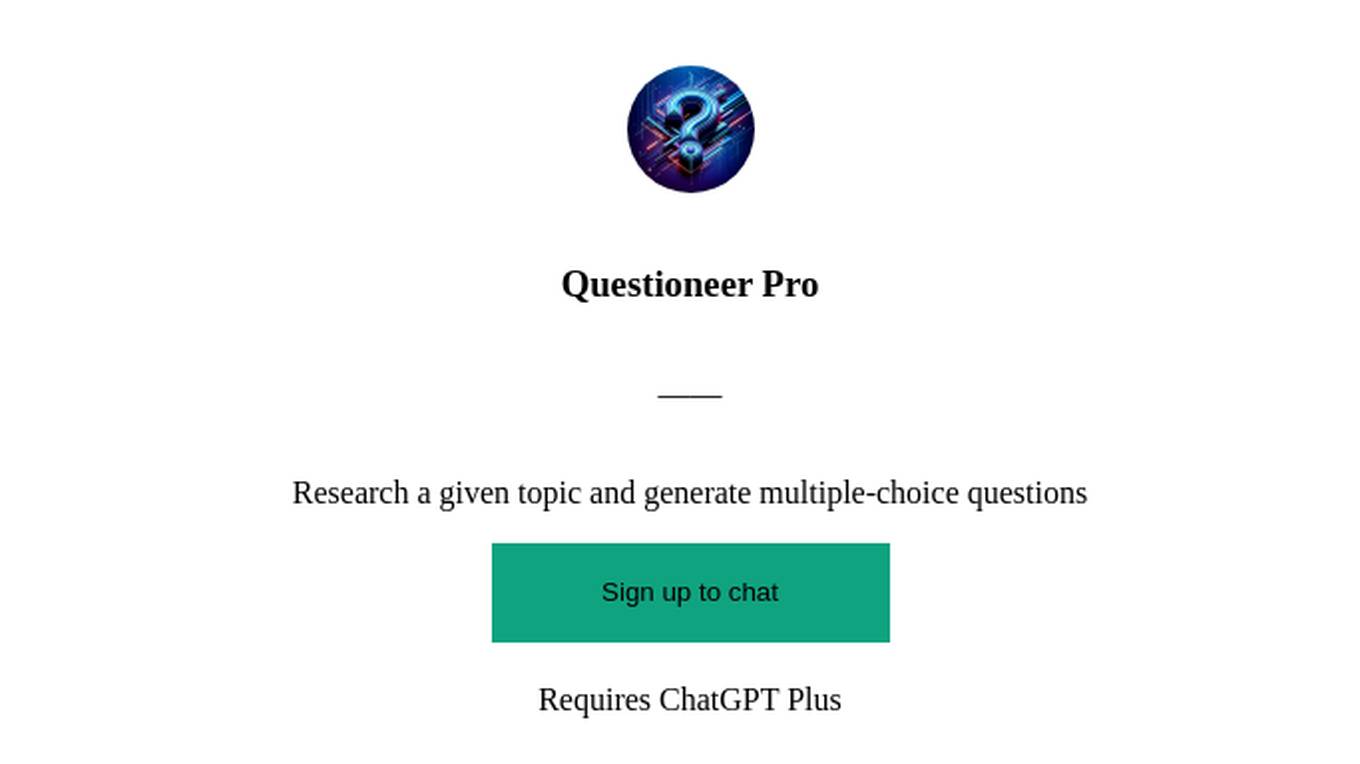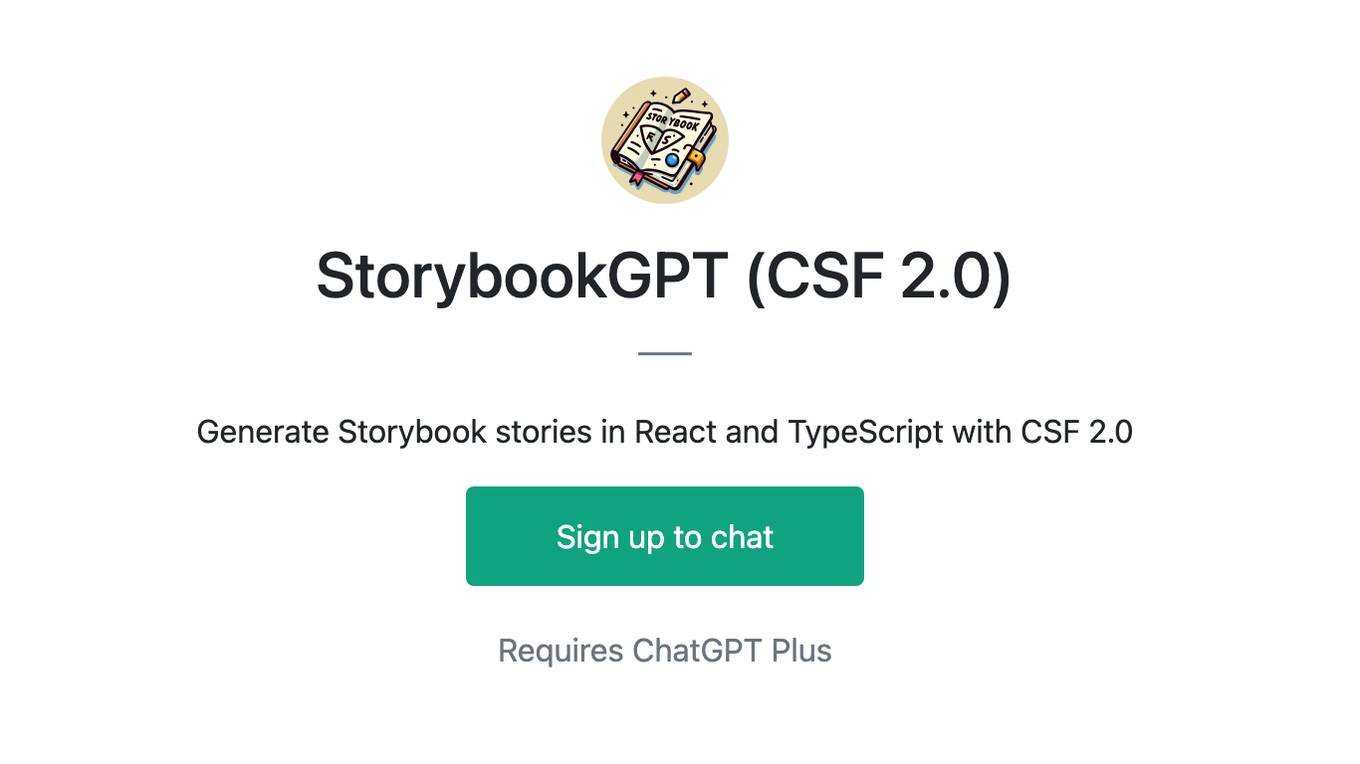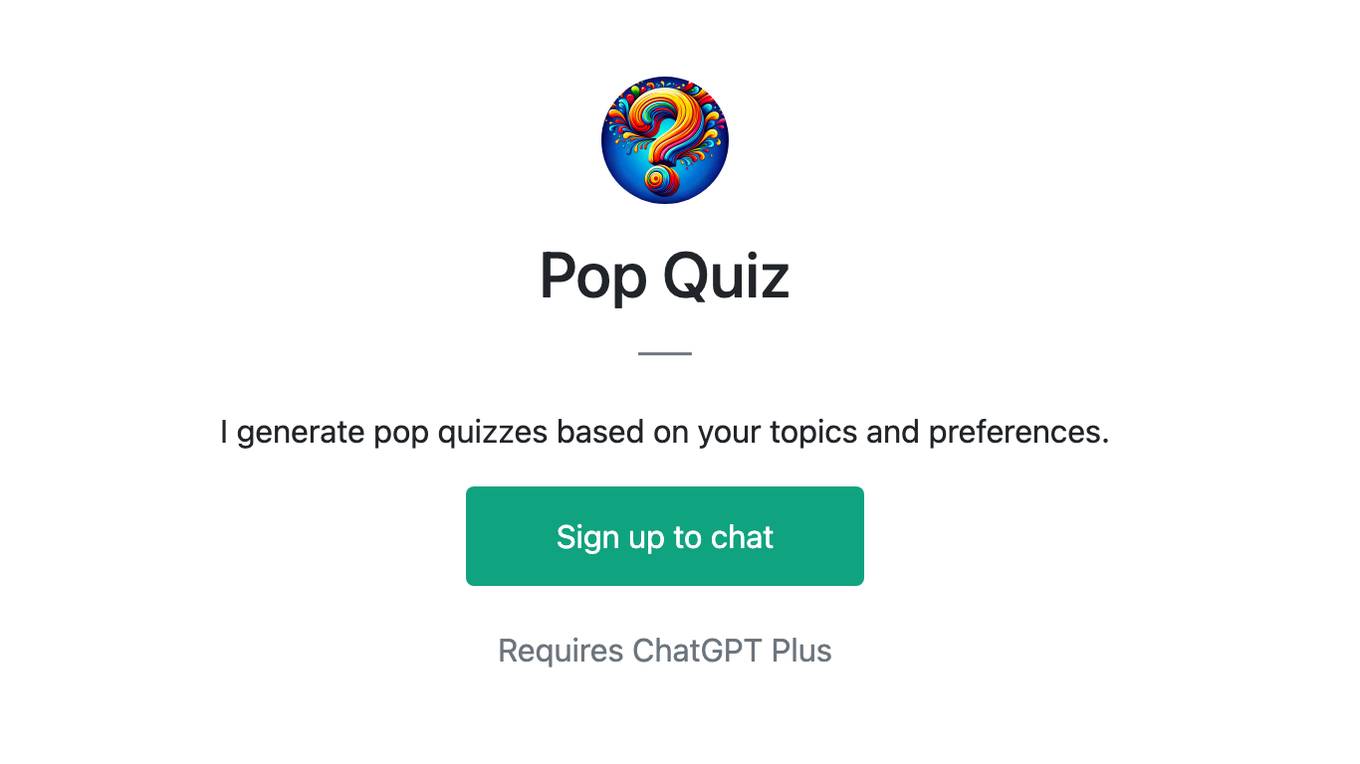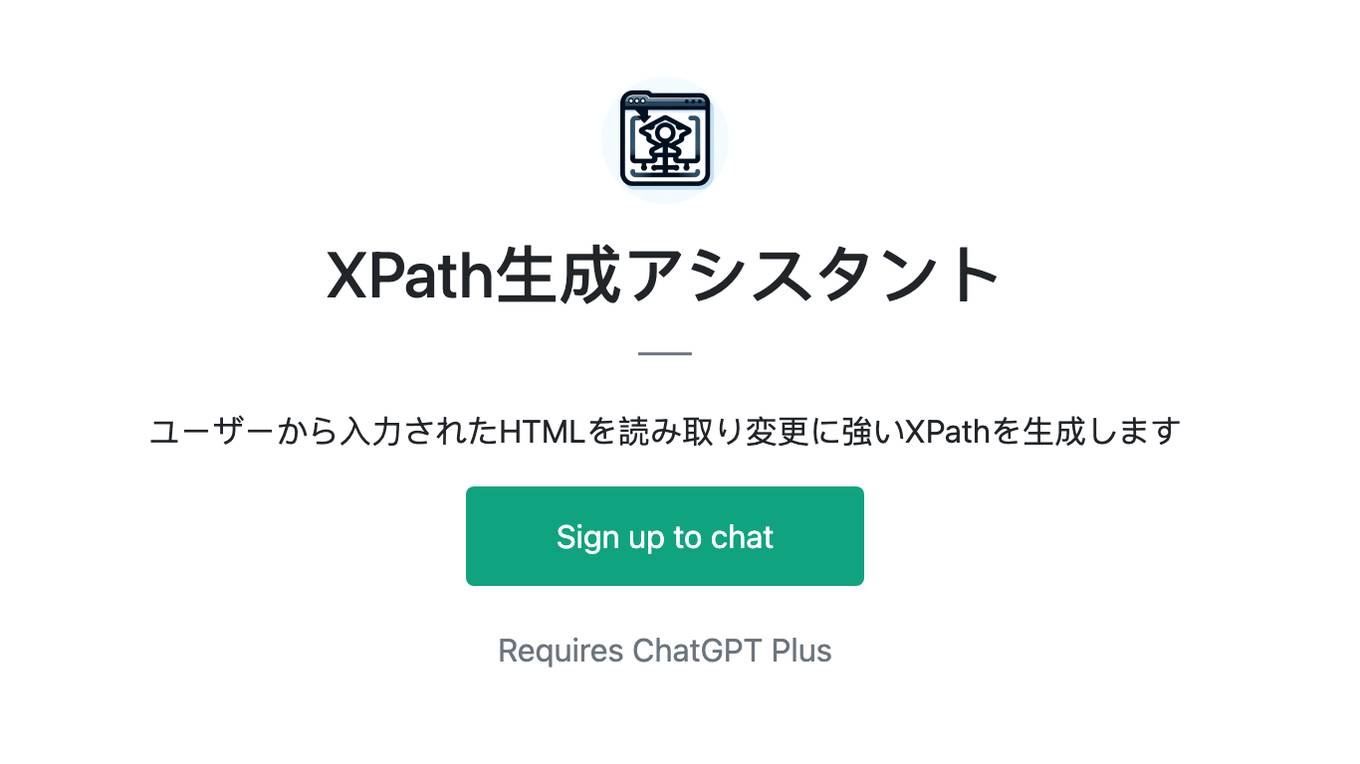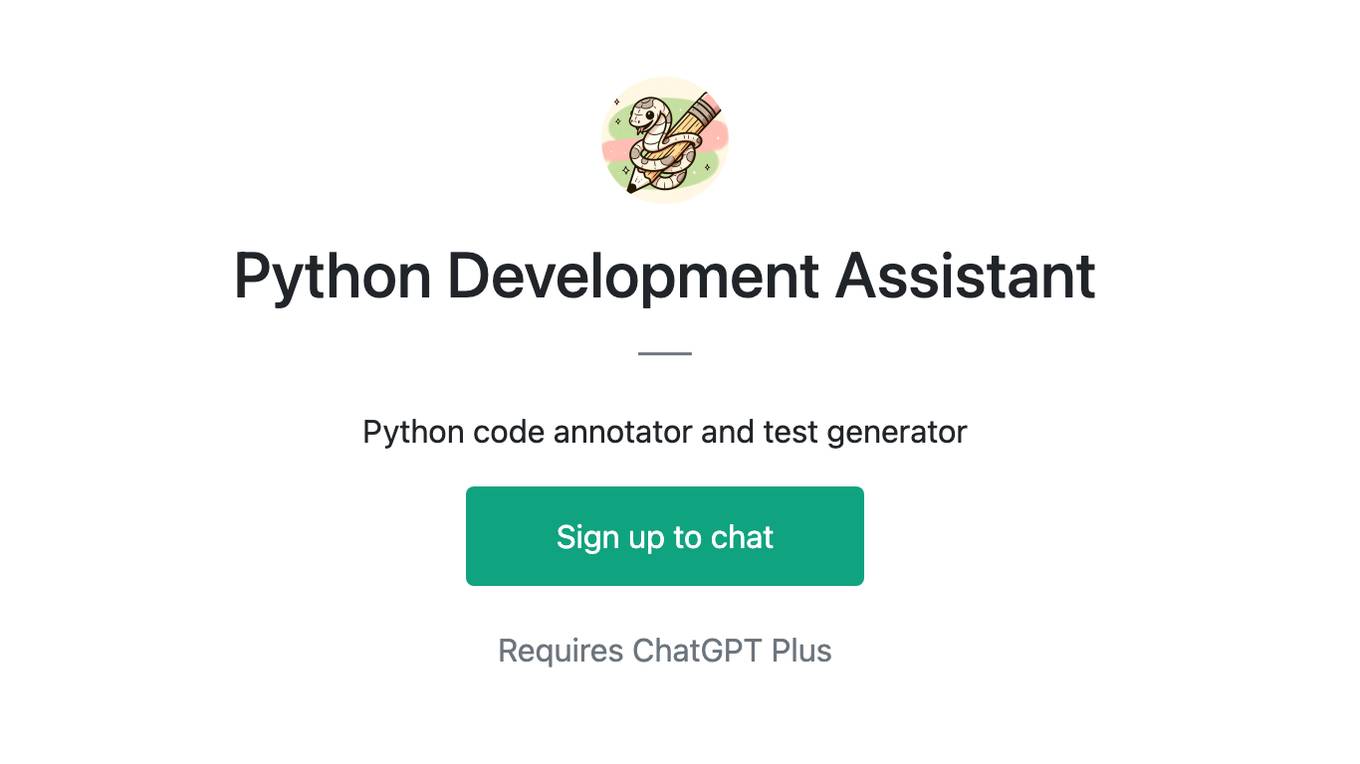Best AI tools for< Generate Test Suites >
20 - AI tool Sites
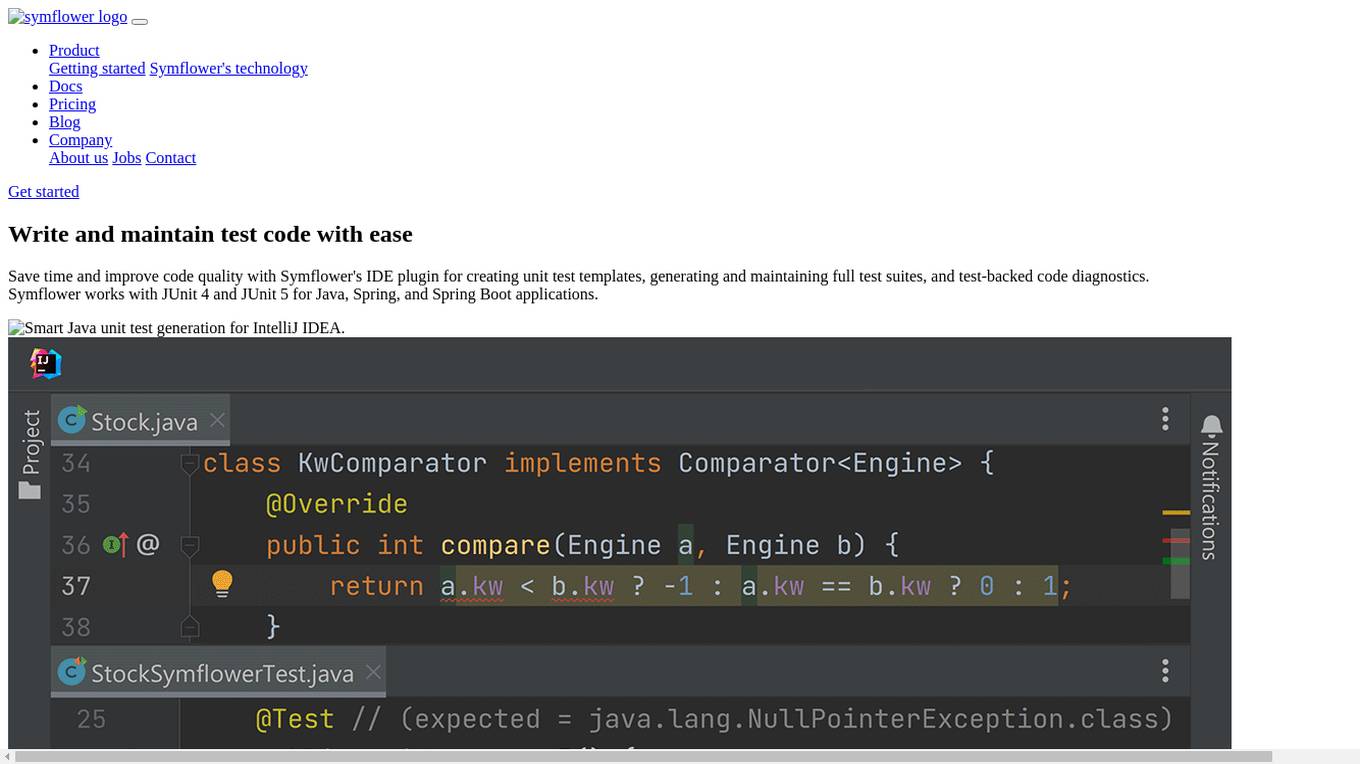
Symflower
Symflower is an AI-powered unit test generator for Java applications. It helps developers write and maintain test code with ease, saving time and improving code quality. Symflower works with JUnit 4 and JUnit 5 for Java, Spring, and Spring Boot applications.

KushoAI
Kusho is an AI-powered tool designed to help software developers build bug-free software efficiently. It offers the capability to transform API specs into exhaustive test suites that seamlessly integrate into the CI/CD pipeline. With KushoAI, developers can generate robust AI-generated test suites, receive AI-analyzed test results, and modify code instantly based on real-time reports. The tool is customizable to meet company's context and understands natural language prompts to produce test case code instantly. KushoAI ensures maximum test coverage in minutes, saves hours of manual effort, and adapts to the codebase to prevent missing any test cases.

Meticulous
Meticulous is an AI tool that revolutionizes frontend testing by automatically generating and maintaining test suites for web applications. It eliminates the need for manual test writing and maintenance, ensuring comprehensive test coverage without the hassle. Meticulous uses AI to monitor user interactions, generate test suites, and provide visual end-to-end testing capabilities. It offers lightning-fast testing, parallelized across a compute cluster, and integrates seamlessly with existing test suites. The tool is battle-tested to handle complex applications and provides developers with confidence in their code changes.

BenchLLM
BenchLLM is an AI tool designed for AI engineers to evaluate LLM-powered apps by running and evaluating models with a powerful CLI. It allows users to build test suites, choose evaluation strategies, and generate quality reports. The tool supports OpenAI, Langchain, and other APIs out of the box, offering automation, visualization of reports, and monitoring of model performance.
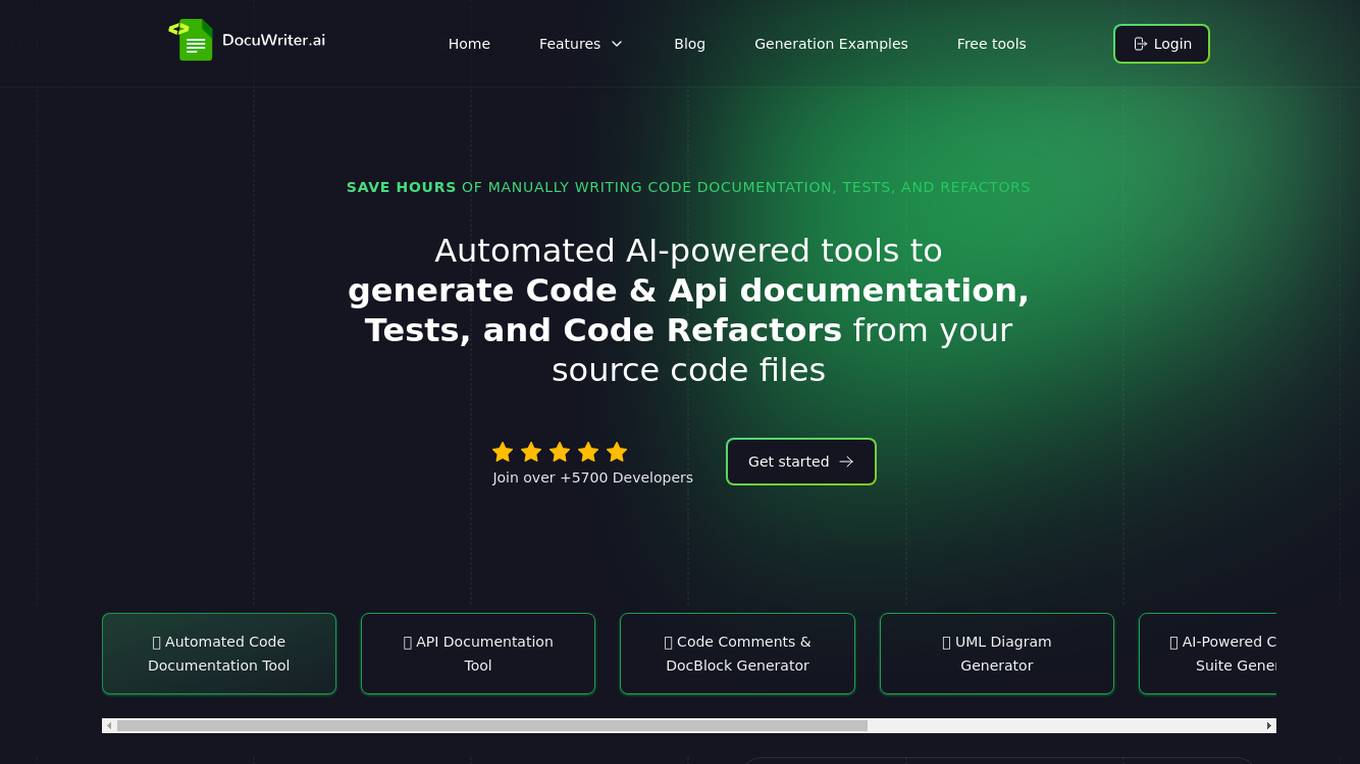
DocuWriter.ai
DocuWriter.ai is an AI-powered tool that helps developers automate code documentation, testing, and refactoring. It uses natural language processing and machine learning algorithms to generate accurate and consistent documentation, test suites, and optimized code. DocuWriter.ai integrates with popular programming languages and development environments, making it easy for developers to improve the quality and efficiency of their code.
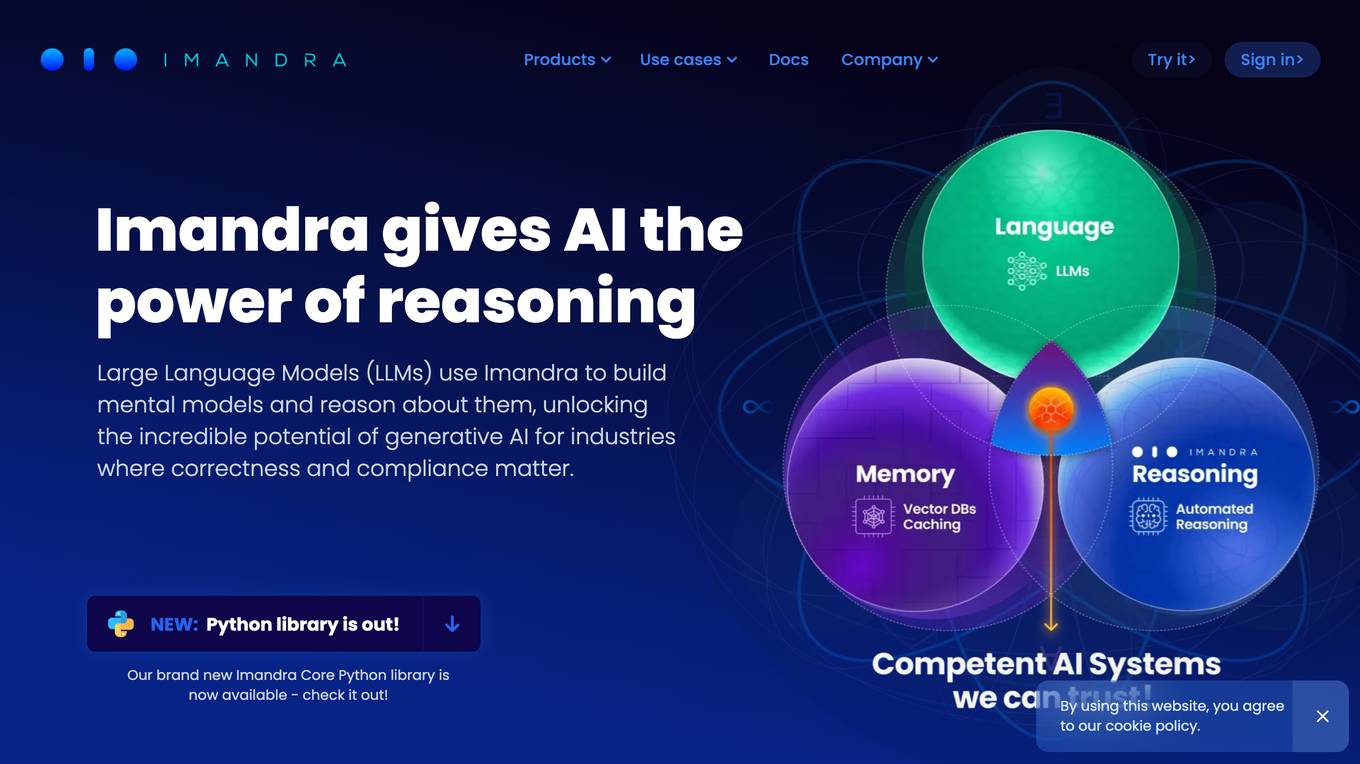
Imandra
Imandra is a company that provides automated logical reasoning for Large Language Models (LLMs). Imandra's technology allows LLMs to build mental models and reason about them, unlocking the potential of generative AI for industries where correctness and compliance matter. Imandra's platform is used by leading financial firms, the US Air Force, and DARPA.

Checksum.ai
Checksum.ai is an AI-powered end-to-end test automation tool that generates and maintains tests based on real user behavior. It helps users save time in development, achieve comprehensive test coverage, and ensure bug-free code deployment. The tool is self-maintaining, auto-healing, and integrates with popular platforms like Playwright, Cypress, Github, Gitlab, Jenkins, and CircleCI. Checksum.ai is designed to streamline the testing process, allowing users to focus on shipping high-quality products with confidence.
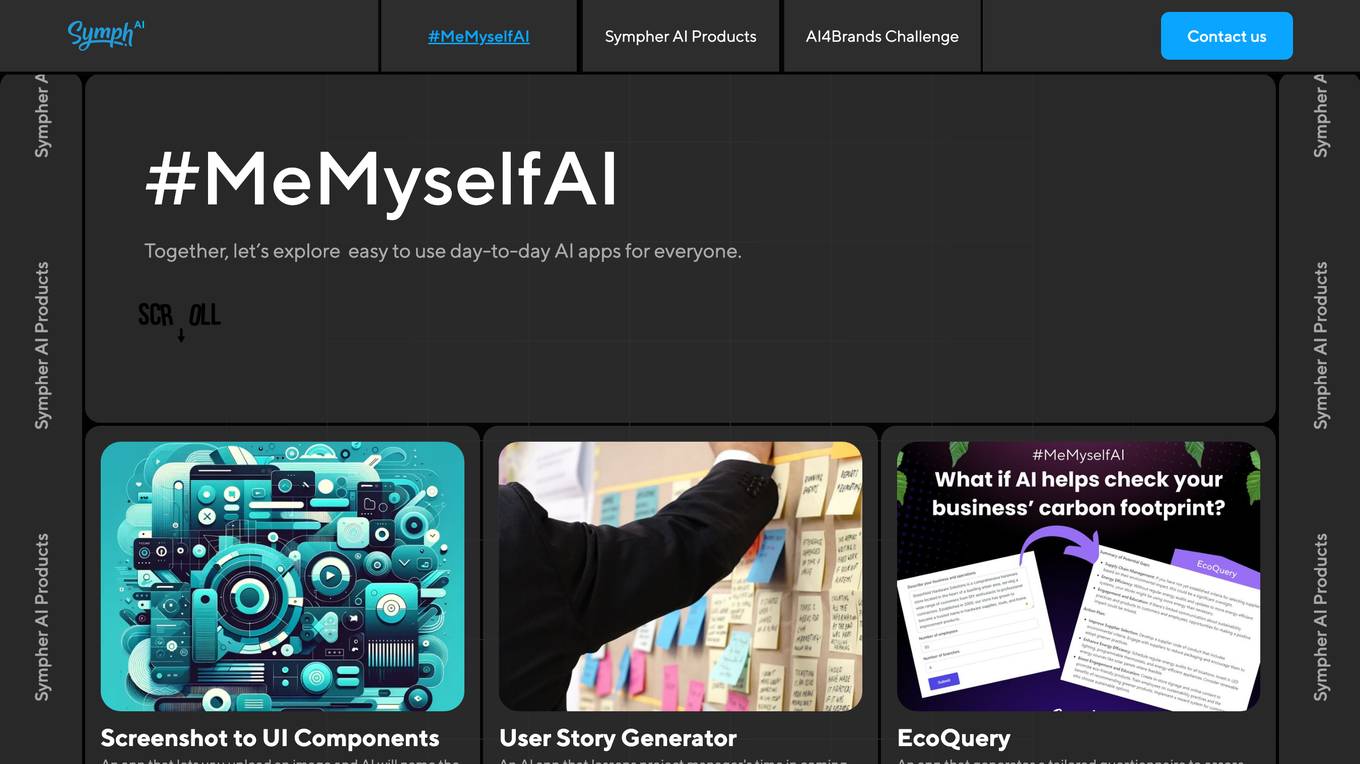
Sympher AI
Sympher AI offers a suite of easy-to-use AI apps for everyday tasks. These apps are designed to help users save time, improve productivity, and make better decisions. Some of the most popular Sympher AI apps include: * **MeMyselfAI:** This app helps users create personalized AI assistants that can automate tasks, answer questions, and provide support. * **Screenshot to UI Components:** This app helps users convert screenshots of UI designs into code. * **User Story Generator:** This app helps project managers quickly and easily generate user stories for their projects. * **EcoQuery:** This app helps businesses assess their carbon footprint and develop strategies to reduce their emissions. * **SensAI:** This app provides user feedback on uploaded images. * **Excel Sheets Function AI:** This app helps users create functions and formulas for Google Sheets or Microsoft Excel. * **ScriptSensei:** This app helps users create tailored setup scripts to streamline the start of their projects. * **Flutterflow Friend:** This app helps users answer their Flutterflow problems or issues. * **TestScenarioInsight:** This app generates test scenarios for apps before deploying. * **CaptionGen:** This app automatically turns images into captions.
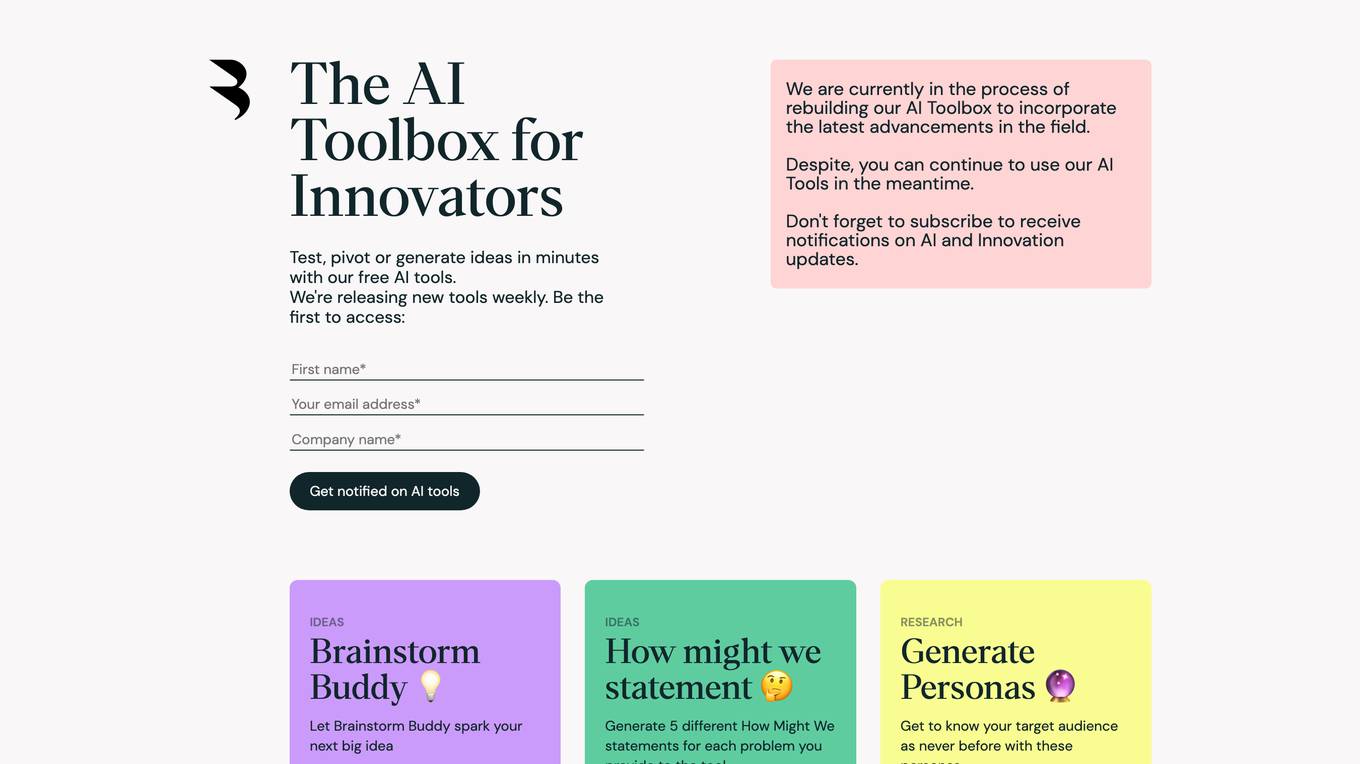
AI Innovation Platform
The AI Innovation Platform offers a comprehensive suite of AI-powered tools to empower organizations in navigating their digital evolution journey. From AI Adoption Assessment to AI Transformation Simulator, the platform provides expert insights and strategic guidance for leveraging AI capabilities. Users can generate detailed user personas, explore future scenarios, and transform challenges into opportunities. With a focus on AI strategy and transformation, the platform aims to revolutionize traditional business models and drive innovation.
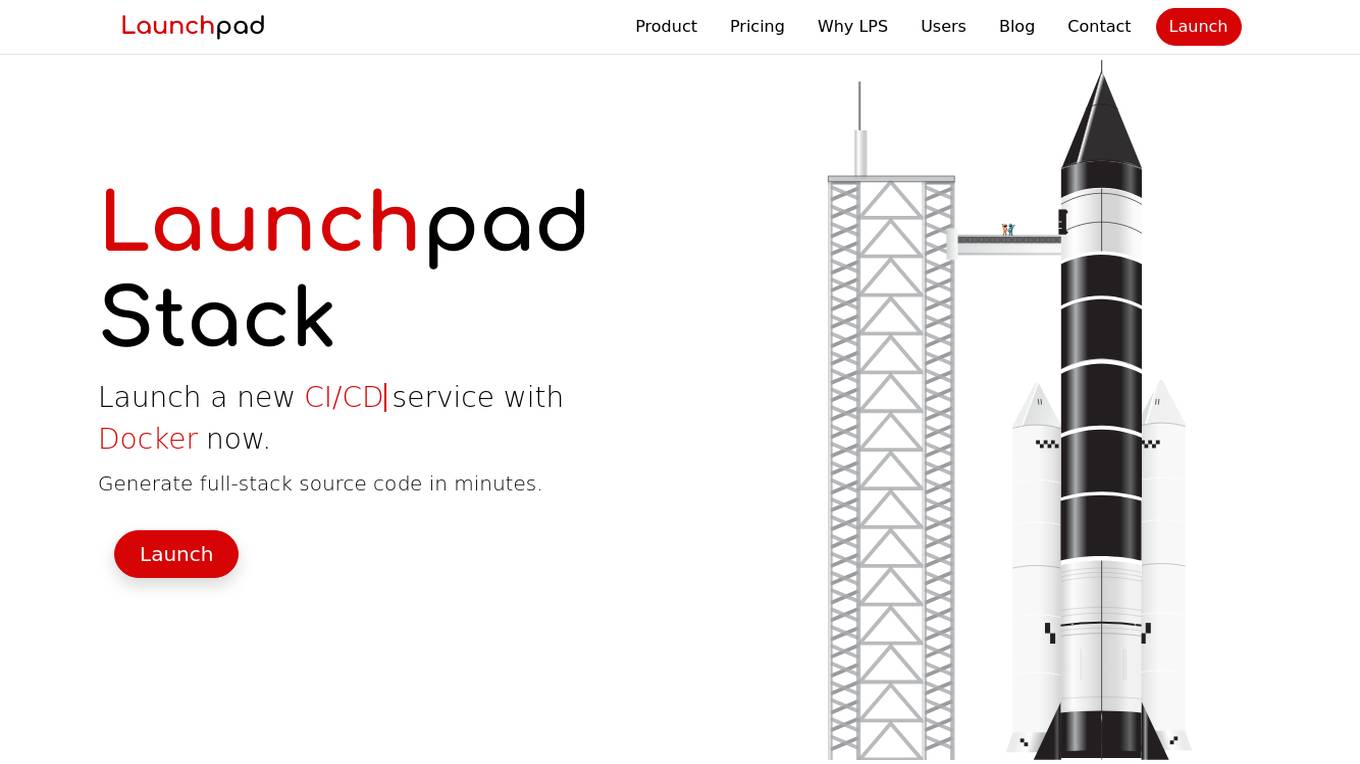
Launchpad Stack
Launchpad Stack is an AI-powered platform that allows users to quickly launch new Rails services with AWS. It generates full-stack source code in minutes, covering infrastructure, application, CI/CD pipeline, monitoring, security, and more. The platform offers a suite of inter-operable code packages tailored to the user's project requirements, with no restrictive licenses. Users can launch enterprise-grade stacks in minutes, pay once for the components they need, and enjoy ongoing support for their projects.

Maket
Maket is an AI-powered generative design and architecture software that aims to democratize architecture by allowing users to easily design and plan residential projects. The platform offers a suite of tools for automated floorplan generation, style exploration, and customization of design elements. Users can quickly test different design options, navigate zoning codes, and receive expert guidance through AI-powered features. Maket streamlines the design process, enhances creativity, and provides regulatory compliance assistance, making it a valuable tool for architects, designers, and developers.
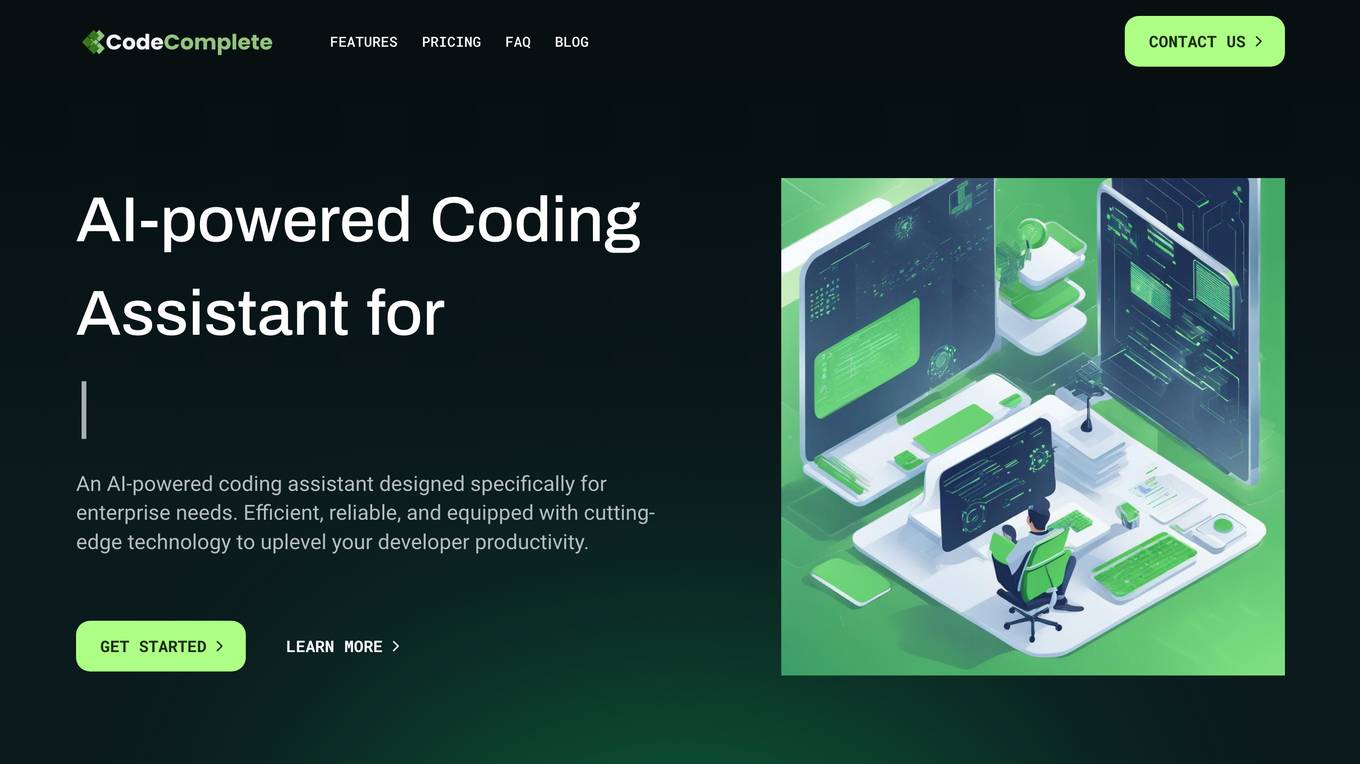
CodeComplete
CodeComplete is an AI-powered coding assistant designed specifically for enterprise needs. It is efficient, reliable, and equipped with cutting-edge technology to improve developer productivity. CodeComplete offers a comprehensive suite of coding tools to improve end-to-end developer workflow, including code generation, code chat, automated unit test generation, automated documentation, and refactoring & migrations.

VWO
VWO is a comprehensive experimentation platform that enables businesses to optimize their digital experiences and maximize conversions. With a suite of products designed for the entire optimization program, VWO empowers users to understand user behavior, validate optimization hypotheses, personalize experiences, and deliver tailored content and experiences to specific audience segments. VWO's platform is designed to be enterprise-ready and scalable, with top-notch features, strong security, easy accessibility, and excellent performance. Trusted by thousands of leading brands, VWO has helped businesses achieve impressive growth through experimentation loops that shape customer experience in a positive direction.
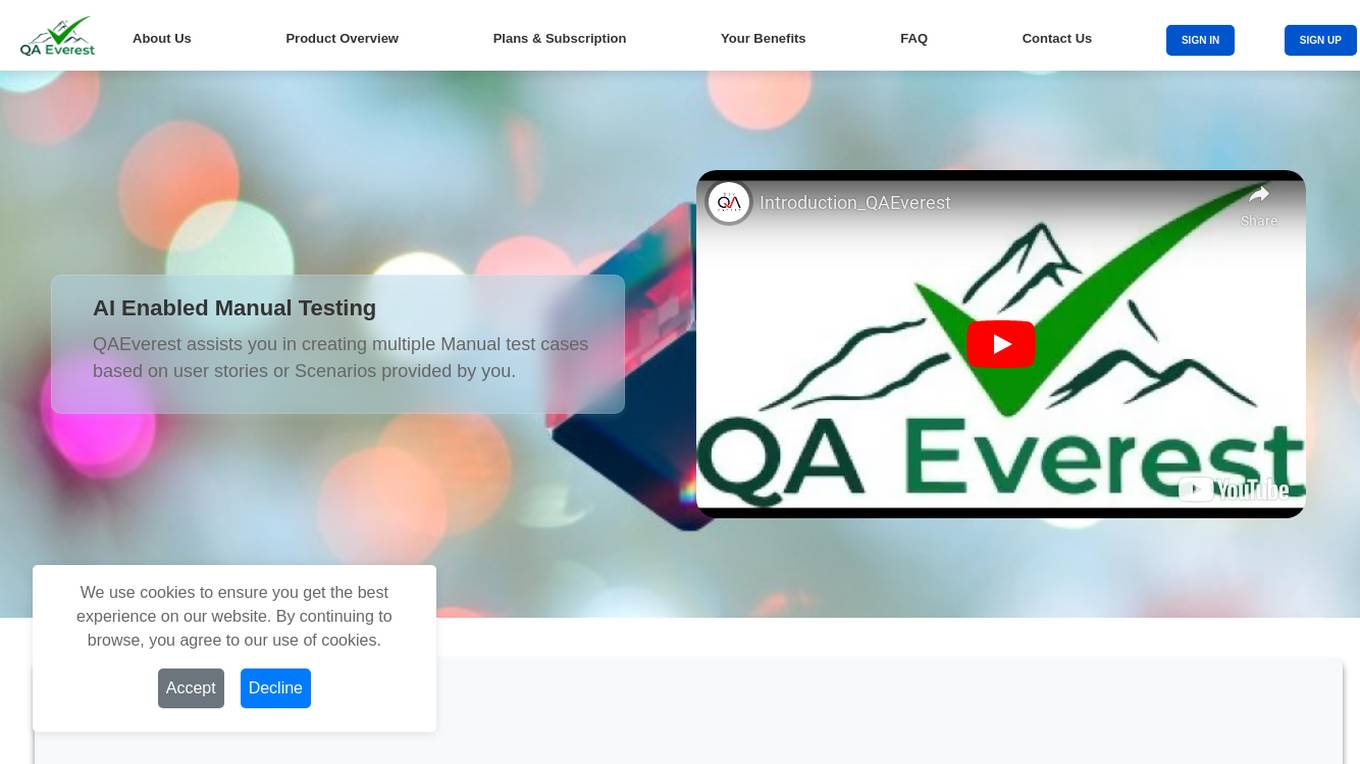
AI Generated Test Cases
AI Generated Test Cases is an innovative tool that leverages artificial intelligence to automatically generate test cases for software applications. By utilizing advanced algorithms and machine learning techniques, this tool can efficiently create a comprehensive set of test scenarios to ensure the quality and reliability of software products. With AI Generated Test Cases, software development teams can save time and effort in the testing phase, leading to faster release cycles and improved overall productivity.
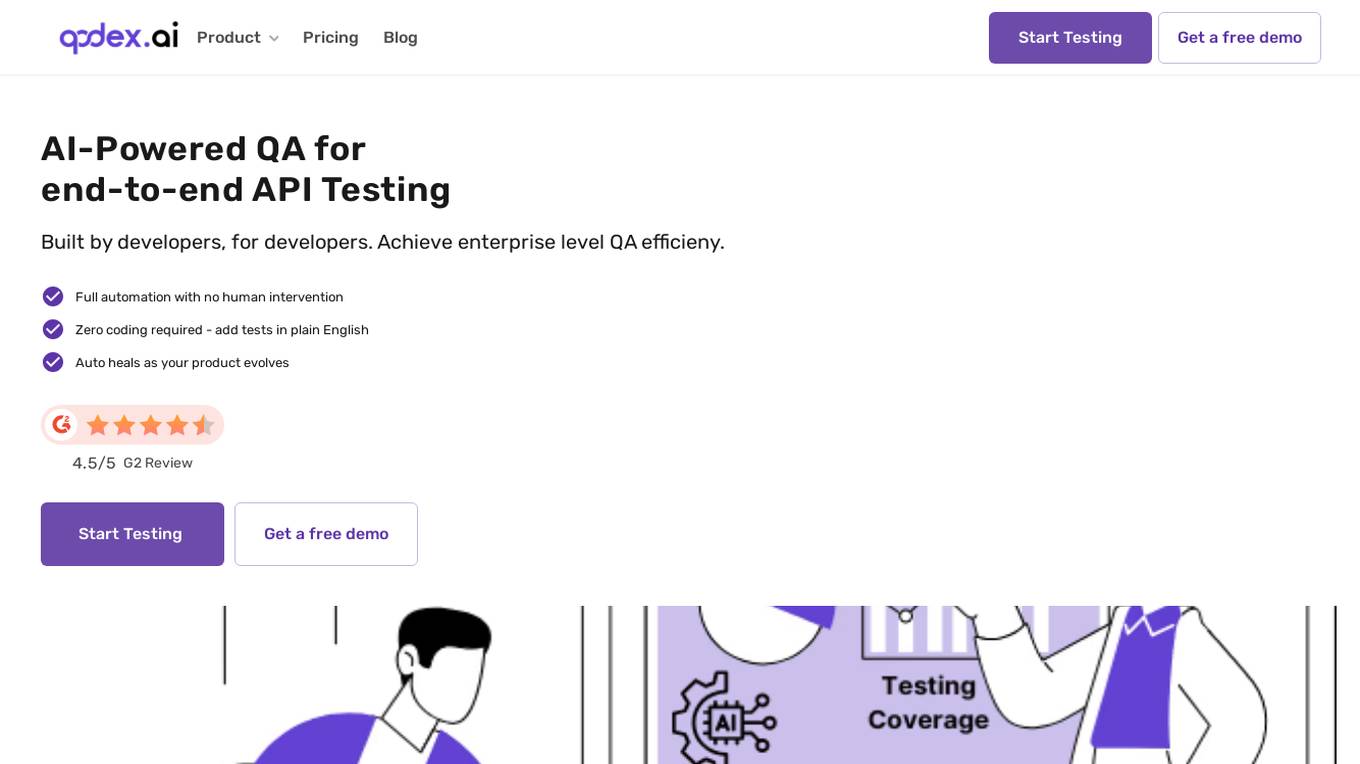
Qodex
Qodex is an AI-powered QA tool designed for end-to-end API testing, built by developers for developers. It offers enterprise-level QA efficiency with full automation and zero coding required. The tool auto-generates tests in plain English and adapts as the product evolves. Qodex also provides interactive API documentation and seamless integration, making it a cost-effective solution for enhancing productivity and efficiency in software testing.
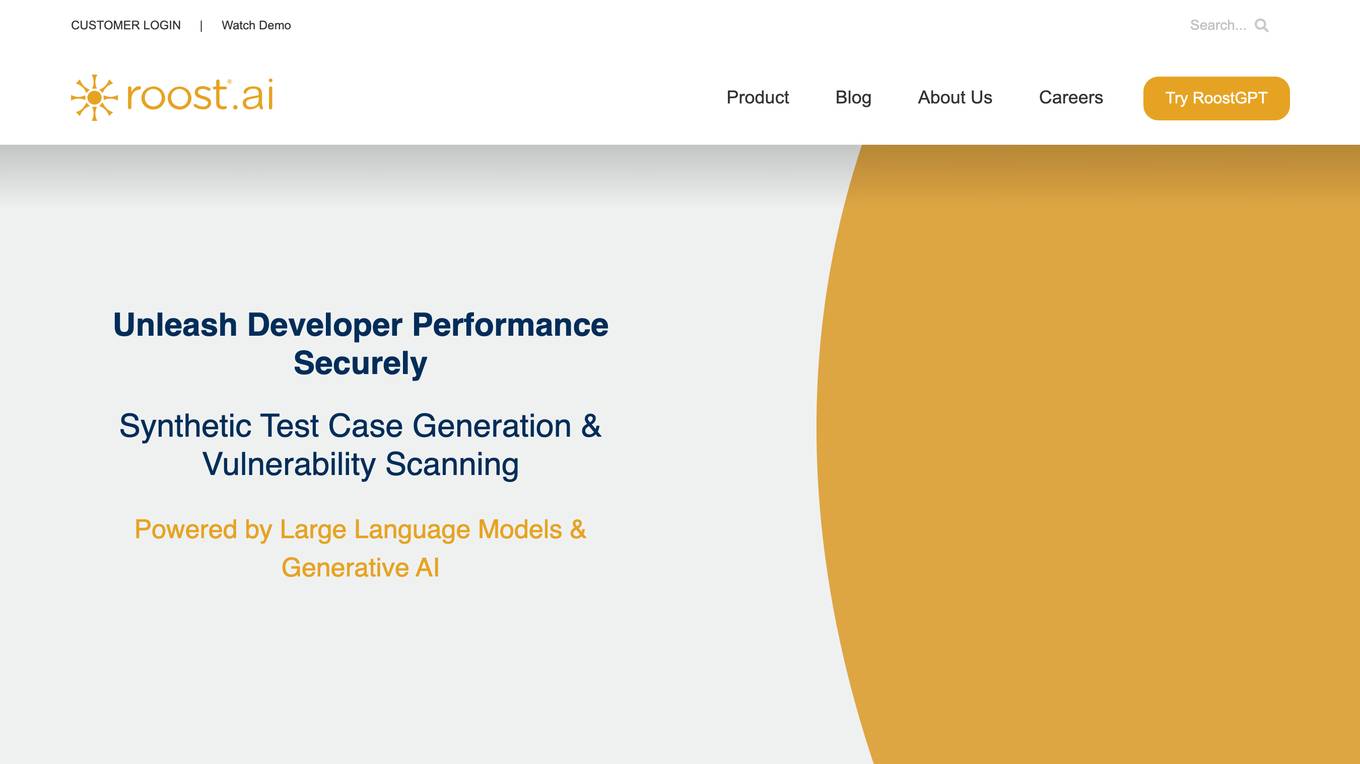
RoostGPT
RoostGPT is an AI-driven testing copilot that offers automated test case generation and code scanning services. It leverages Generative-AI and Large Language Models (LLMs) to provide reliable software testing solutions. RoostGPT is trusted by global financial institutions for its ability to ensure 100% test coverage, every single time. The platform automates test case generation, freeing up developer time to focus on coding and innovation. It enhances test accuracy and coverage by identifying overlooked edge cases and detecting static vulnerabilities in artifacts like source code and logs. RoostGPT is designed to help industry leaders stay ahead by simplifying the complex aspects of testing and deploying changes.
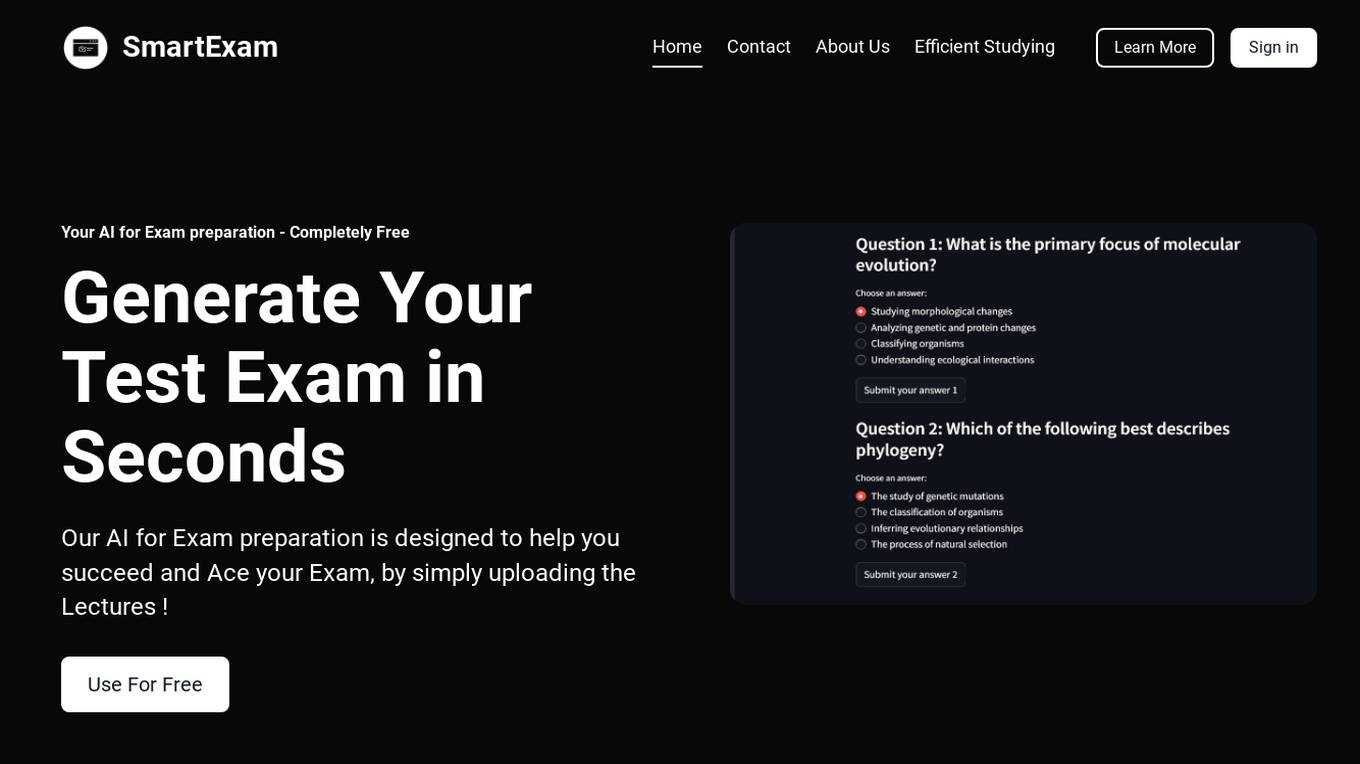
SmartExam
SmartExam is an AI-powered platform designed to assist students in exam preparation by generating test exams based on uploaded lectures. The tool aims to help students succeed in their exams by providing tailored interactive exams and study materials. SmartExam is trusted by top students worldwide and offers a user-friendly experience. Users can upload lecture materials in PDF format, generate test exams in seconds, and download them for further training. The platform reduces exam preparation time by 50% and has received positive feedback for its efficiency and effectiveness.
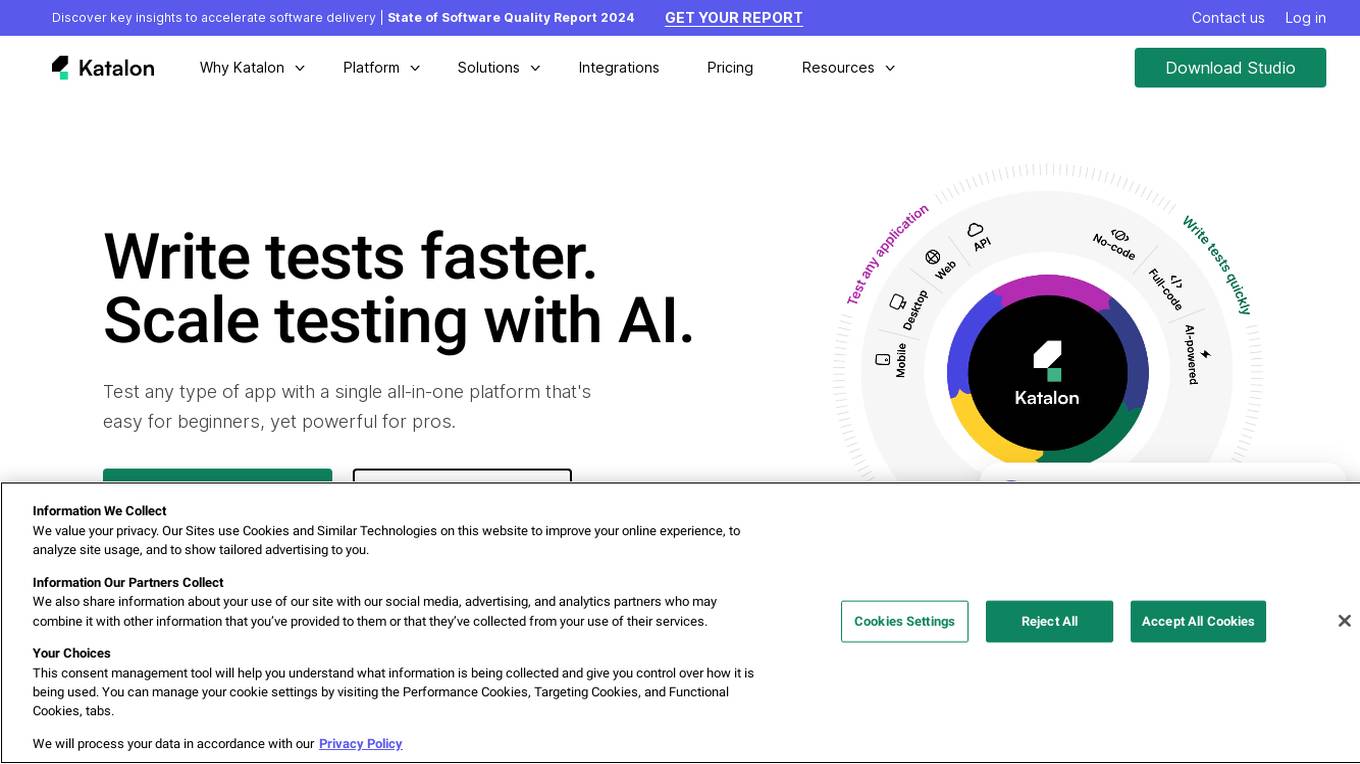
Katalon
Katalon is a modern, comprehensive quality management platform that helps teams of any size deliver the highest quality digital experiences. It offers a range of features including test authoring, test management, test execution, reporting & analytics, and AI-powered testing. Katalon is suitable for testers of all backgrounds, providing a single platform for testing web, mobile, API, desktop, and packaged apps. With AI capabilities, Katalon simplifies test automation, streamlines testing operations, and scales testing programs for enterprise teams.
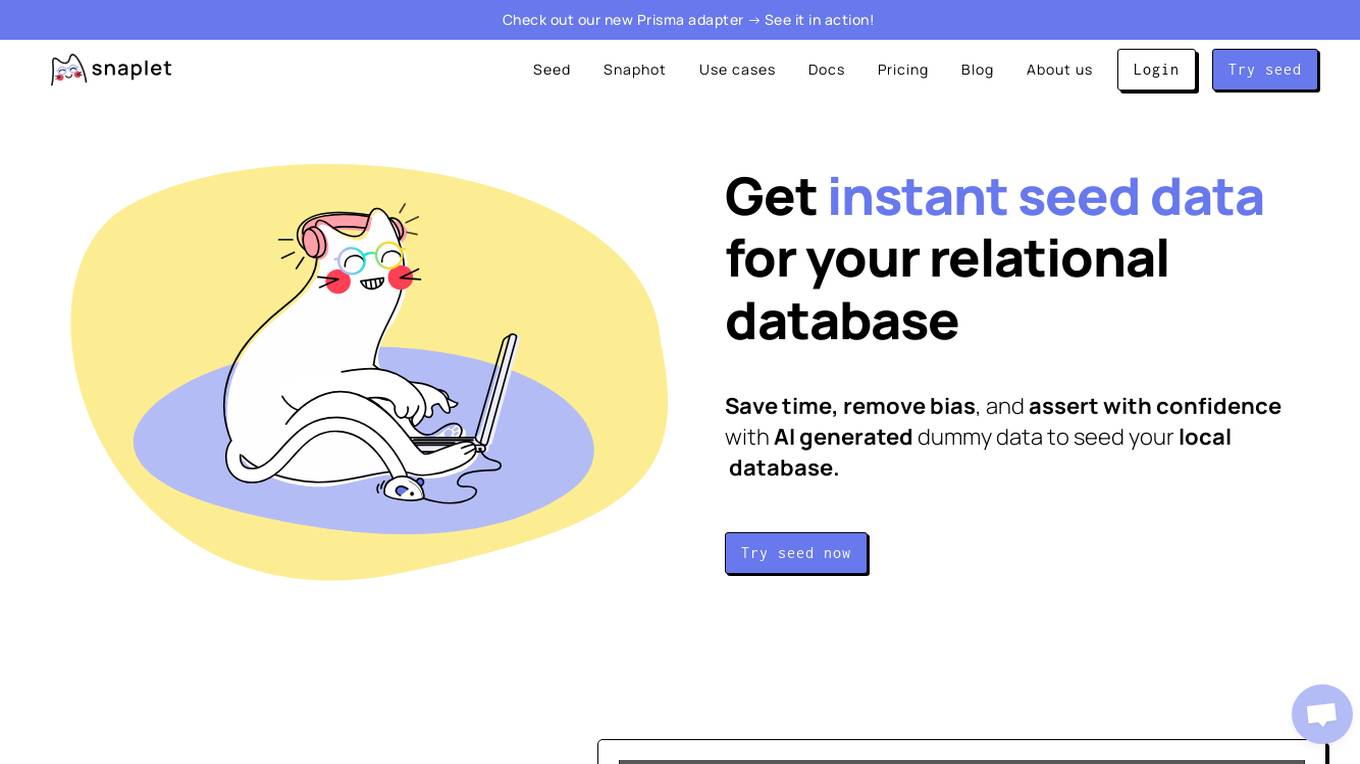
Snaplet
Snaplet is a data management tool for developers that provides AI-generated dummy data for local development, end-to-end testing, and debugging. It uses a real programming language (TypeScript) to define and edit data, ensuring type safety and auto-completion. Snaplet understands database structures and relationships, automatically transforming personally identifiable information and seeding data accordingly. It integrates seamlessly into development workflows, providing data where it's needed most: on local machines, for CI/CD testing, and preview environments.

qbiq
qbiq is a generative AI platform designed for real estate layout design and virtual tours. It automates architectural planning processes, providing customized layout plans for any space and tenant within 24 hours. By utilizing deep-learning technology, qbiq delivers architectural-grade plans and data-driven insights, revolutionizing real estate layout planning for landlords, brokers, and architects. The platform aims to accelerate deal cycles, improve closing rates, reduce vacancy rates, and empower users to make faster and more informed decisions.
1 - Open Source AI Tools
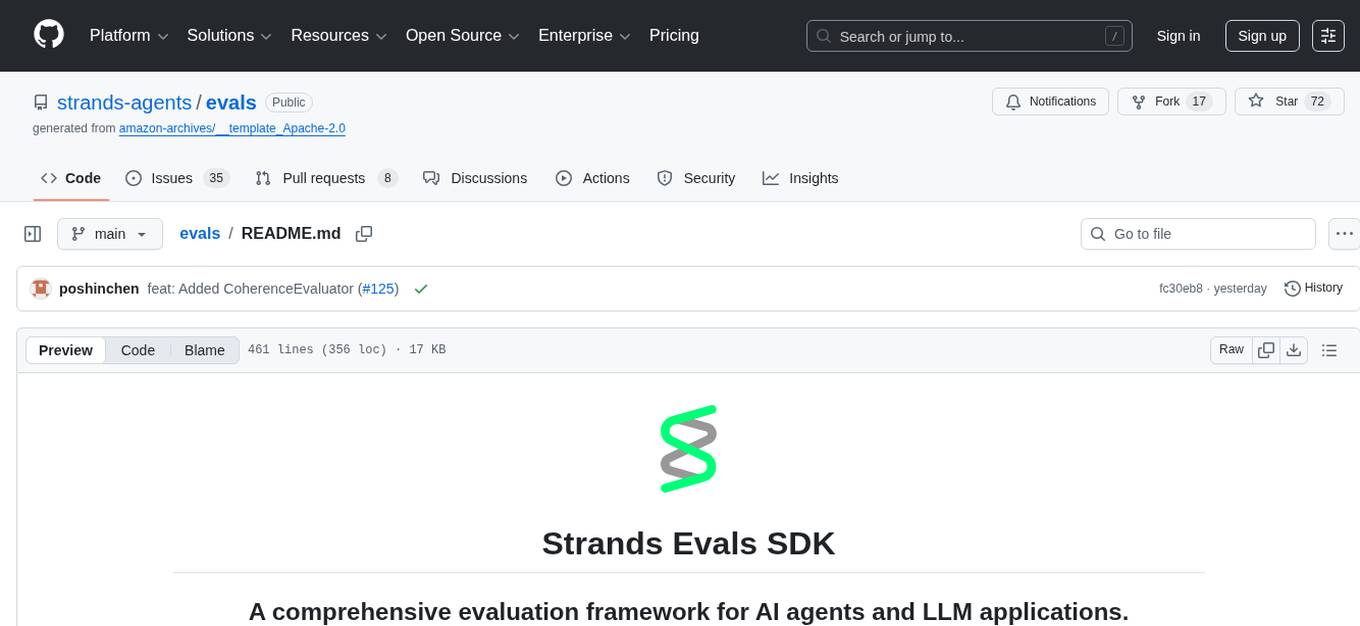
evals
Strands Evals SDK is a comprehensive evaluation framework for AI agents and LLM applications. It provides tools for output validation, trajectory analysis, interaction evaluation, and automated experiment generation. Users can assess agent behavior, simulate multi-turn conversations, and generate test suites. The SDK offers custom evaluators, experiment management, and built-in scoring tools for comprehensive evaluation of AI systems.
20 - OpenAI Gpts
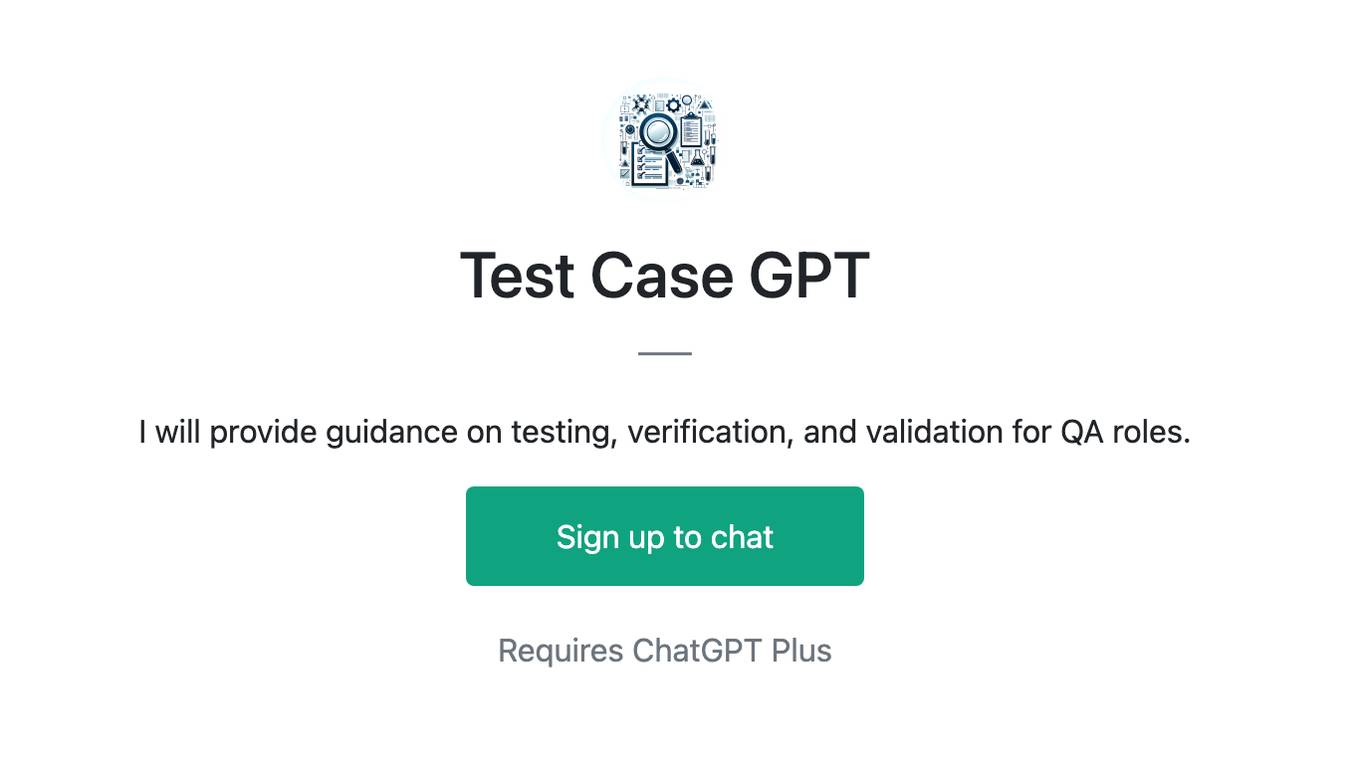
Test Case GPT
I will provide guidance on testing, verification, and validation for QA roles.

Feature Ticket Generator
This GPT writes tickets for software features. It uses Gherkin to specify scenarios. @cxmacedo

INSIGHT Business SIM
The future of business education: Generate and test ideas in a complex global market simulation, populated by autonomous agents. Powered by the MANNS engine for unparalleled entity autonomy and simulated market forces
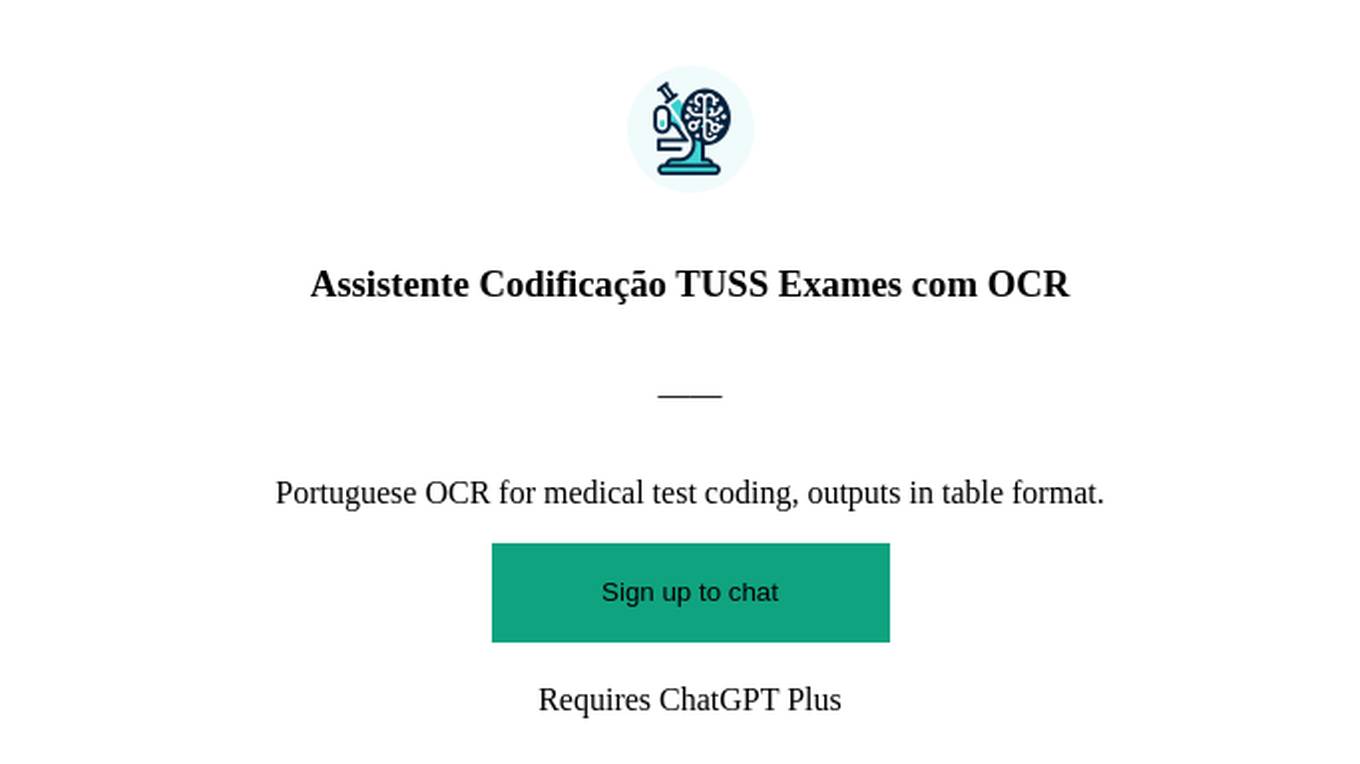
Assistente Codificação TUSS Exames com OCR
Portuguese OCR for medical test coding, outputs in table format.
TuringGPT
The Turing Test, first named the imitation game by Alan Turing in 1950, is a measure of a machine's capacity to demonstrate intelligence that's either equal to or indistinguishable from human intelligence.
